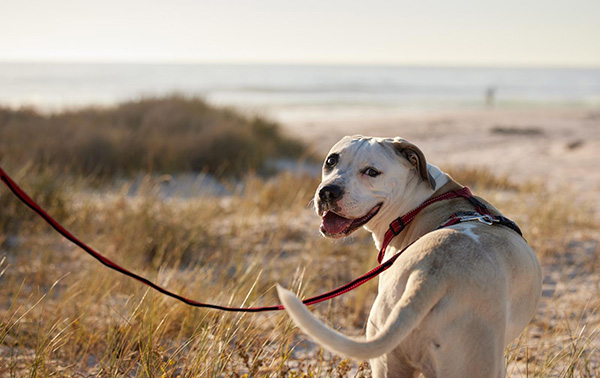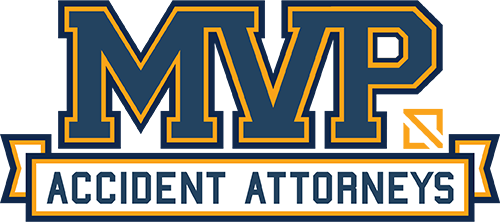
MVP scholarship winner: steps for responsible dog ownership
At MVP Accident Attorneys, we understand the value of a college education as well as the financial burden it can place on students and families. That’s why we created a $1,000 scholarship essay contest to support students of all ages and backgrounds in their pursuit of higher education.
For our first contest, we asked students to write an insightful essay in response to the following question:
Under California strict liability law, a dog's owner is responsible for attacks, regardless of whether or not they knew the dog was dangerous. What steps can a dog owner take to ensure their dog’s safety and the safety of others?
After reviewing all the submissions, we were particularly impressed with an essay written by a junior at Austin Community College. We’re pleased to announce that Maryrose Nguyen is the winner of this year’s scholarship!
Here’s her winning essay:
Dog Safety and California Law
California law imposes strict liability on dog owners for damages caused by their dogs. This means that a dog owner is liable for attacks even if they did not know the dog was dangerous (Binder and Fissell). There are precautionary steps that dog owners can take to ensure their dog's safety and the safety of others. First, it is important to socialize dogs from an early age. This means exposing them to a variety of people, places, and situations in a positive way. Second, dog owners should never leave their dogs unsupervised with children or strangers. Third, dog owners should always keep their dogs on a leash in public places. Fourth, dog owners should be aware of their dog's body language and be able to read their cues. If a dog owner finds their dog uncomfortable or agitated, remove them from the situation immediately. Finally, pet owners should always consult with a professional trainer if they have any concerns about their dog's behavior. By taking these steps, owners can help to ensure that their dog is safe and that others are protected from harm.
Apart from the aforementioned precautionary steps, there are evidence-based training methods especially designed for more aggressive dog breeds. Owners of known aggressive dog breeds must consult certified vets to design a behavioral therapy program and to ensure that their pets will under no condition attack a stranger (Odore et al.). Aggressive dogs often nip at strangers as a way of asserting dominance or feeling threatened. While establishing leadership with a dog from an early age is the best way to prevent this behavior, several training methods can help to desensitize them to strangers and teach them alternate behaviors.
One common method is known as behavior therapy, which involves exposing the dog to a variety of people in different situations while rewarding them for remaining calm. This helps them to associate positive experiences with meeting new people. It is pertinent to note at this point that such training programs should be designed and conducted under expert supervision to ensure the safety of the dogs as well as those around them. Another approach is known as desensitization, which involves slowly introducing the dog to new people and environments while remaining calm and relaxed.
This helps them to understand that there is nothing to be afraid of. Alternate behaviors can also be taught, such as sitting or lying down when someone approaches, which can help to diffuse any potential tension. With patience and consistency, these methods can be effective in teaching your dog not to nip at strangers.
Conclusively, according to Californian law, dog owners are held responsible for the behavior and actions of their dogs under most circumstances, hence dog owners must take precautionary steps to mitigate the risks of their dog's nipping or attacking strangers. While precautionary steps in most cases yield promising results, in certain cases of heightened dog aggression, it is advised for dog owners to switch to a more strictly designed behavior therapy.
Works Cited
Binder, Guyora, and Brenner Fissell. “Judicial Application of Strict Liability Local Ordinances.” Ariz. St. LJ, vol. 53, 2021, p. 425.
Odore, Rosangela, et al. “Behavioral Therapy and Fluoxetine Treatment in Aggressive Dogs: A Case Study.” Animals, vol. 10, no. 5, 2020, p. 832.
About the winner

Maryrose Nguyen is a Vietnamese American first-generation college student at Austin Community College. She is currently a junior pursuing an associate degree in business administration. After graduation, she plans to transfer to Texas State University to earn a bachelor’s degree in accounting.
Her ultimate career goal is to become a certified public accountant (CPA). She tells us that it’s her dream to start her own business as a CPA, and she hopes to build a career in accounting where she can better support her family and community.
When she’s not working or studying, she likes to volunteer at her church (Holy Vietnamese Catholic Church). She says that volunteering has always been a big part of her life because she enjoys giving back to her community.
Think you could write a winning essay? Join us for our next scholarship contest!
Thanks to everyone who participated in this year’s essay contest, and congratulations, Maryrose, on your winning essay!
If you missed this contest or would like to try again next time, please feel free to check out our scholarship page for more details. Students must be enrolled in college to be eligible. Good luck!
Author

Brett Sachs
Brett S. Sachs graduated from Michigan State University College of Law with Cum Laude Honors. While attending Michigan State, Brett was awarded for his service in the Michigan State University College of Law Civil Rights Clinic, where he represented prisoners of the Michigan Department of Corrections from injustices brought upon them. Learn more.
Top-Rated Lawyers

Lizbhett Rodriguez
Jason Acosta

When You’ve Been Injured
Personal Injury Law

